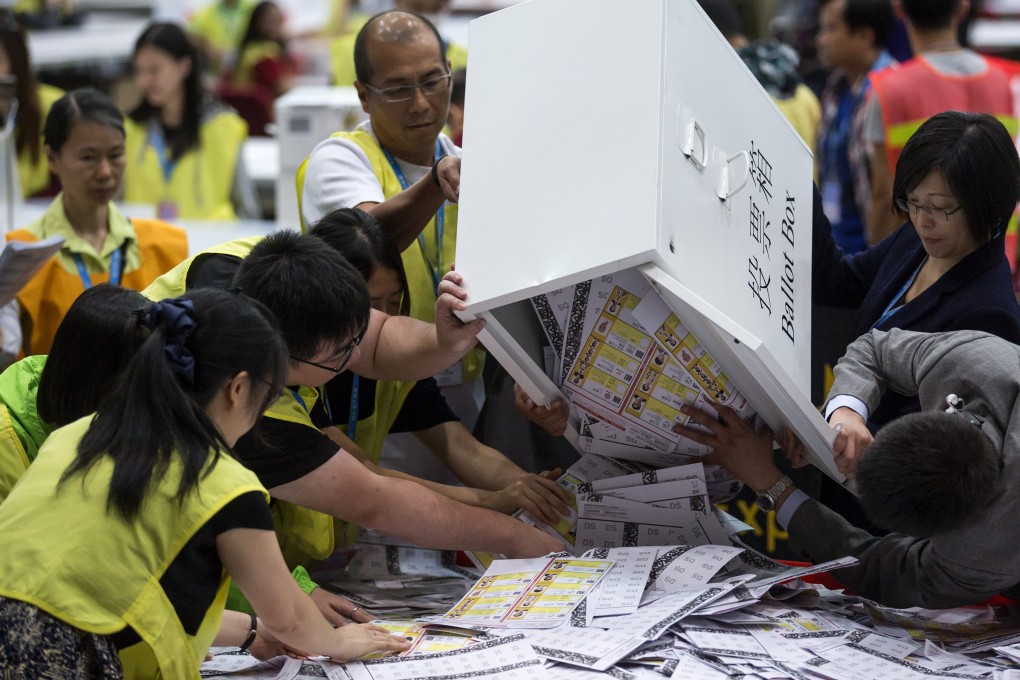Advertisement
Opinion | Hong Kong election reform: banning blank votes would open a Pandora’s box
- The two senior officials who ignited a debate last week by raising the possibility of such a ban should have known better
- The idea is preposterous: how would you know who had cast a blank vote unless voting would no longer be secret?
Reading Time:3 minutes
Why you can trust SCMP
21

It’s hard to imagine it was only in 2014 that Carrie Lam Cheng Yuet-ngor asked students leaders demanding universal suffrage to hold out hope, saying: “We can still improve the system for 2022.” She was chief secretary at the time and leading a high-profile dialogue with the student leaders, after the decision came down from the Standing Committee of the National People’s Congress on August 31, 2014, that candidates for chief executive would have to be endorsed by more than half of the nominating committee before they could seek popular election.
Fast forward to today. No one then anticipated the systemic improvements that have now been made for 2022. Future administrations will enjoy unprecedented support from the Legislative Council, and their work will be unencumbered by obstructionist opposition politics.
To judge by Lam’s confidence at the most recent question-and-answer session at Legco last week, that new dawn has already broken. Her officials have been hard at work too, thinking of even more ways to improve our system. Ever so forward-looking, the secretary for justice and the secretary for constitutional and mainland affairs are already thinking of pre-empting blank protest votes by – guess what? – banning them.
Advertisement
This new-found enthusiasm for a proactive approach should in theory be welcomed. It does seem an improvement on those dark days when the administration appeared content to sit out the exchange of Molotov cocktails and tear gas.
Having said that, there is such a thing as being too fired up. While I hate to be the one to dampen their administrative enthusiasm, Justice Secretary Teresa Cheng Yeuk-wah and Constitutional Affairs Secretary Erick Tsang Kwok-wai have surely jumped the gun on the issue of blank votes.
Advertisement
In urging residents not to cast a blank ballot as it is their civic responsibility to vote, and implying that casting a protest vote is not civic behaviour, Cheng has stepped into a political minefield. We don’t even need to get too academic to see that such an assertion is highly problematic. Casting a blank ballot is not simply abstaining, or choosing to stay in and watch television.
Advertisement
Select Voice
Choose your listening speed
Get through articles 2x faster
1.25x
250 WPM
Slow
Average
Fast
1.25x
